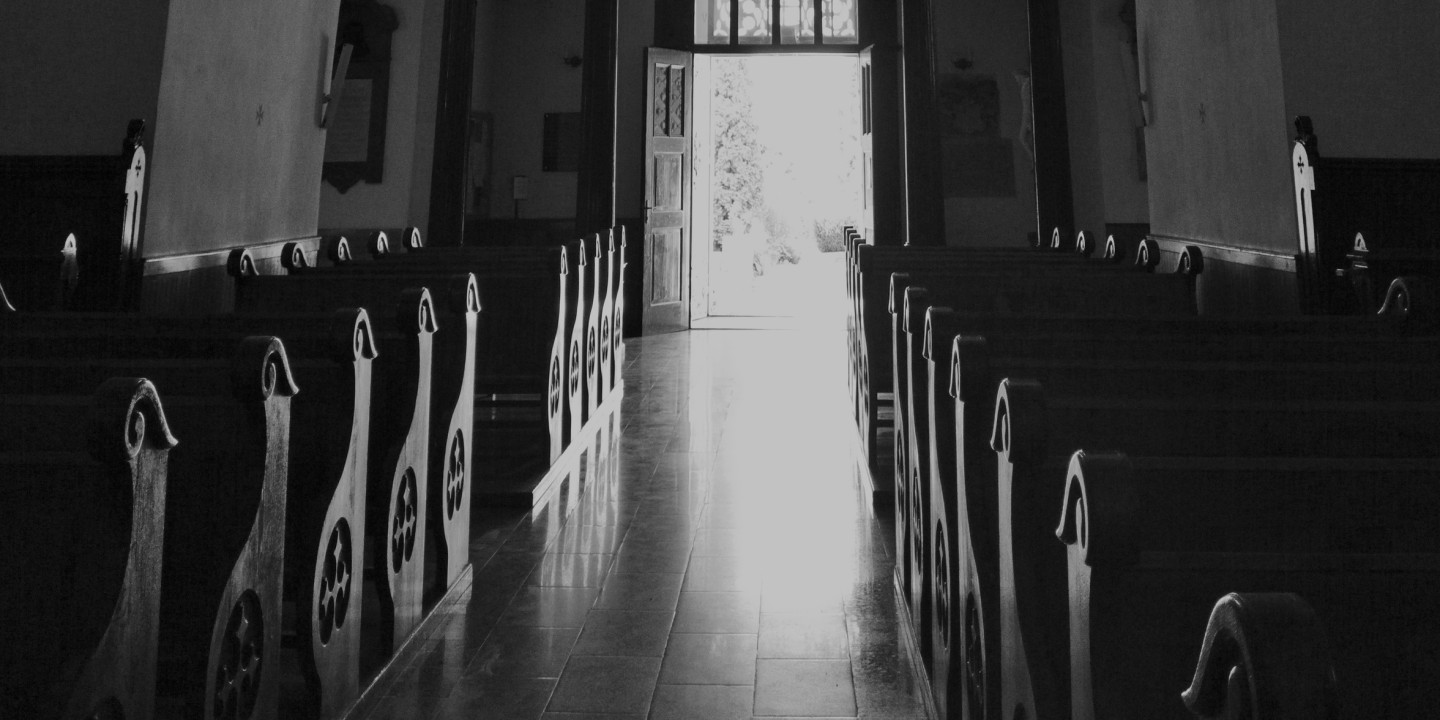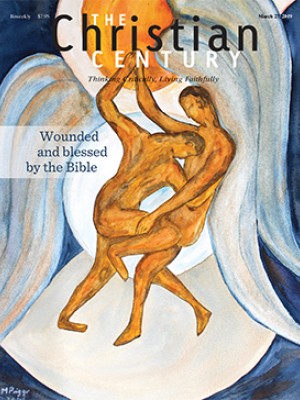I’m a “church leader” who doesn’t really go to church
I love the church. It's harder to love specific congregations.

“I don’t really go to church.” This sheepish, hushed confession broke the ice. The rest of us at the table responded with grateful nods and murmurs of understanding.
We were at an invitation-only consultation on leadership and the church. Around the table were up-and-coming movers and shakers, those in whom many institutional resources had been invested: the pretenured seminary professors, the new senior pastors, the innovators meant to be changing the church for the better. Yet my new friend’s statement was met with empathic support—and it brought about several similar confessions. Others present admitted being committed to the capital-C Church but uninspired by—and not necessarily attending—its local, congregational expressions. I was one of them: I’m a seminary professor, but I don’t really go to church.
In our first ten years of marriage, my wife and I claimed 12 addresses between us. This geographical roulette was due to various professional commitments—graduate programs, fellowships, a first job, a better job. Finally, after a decade of shifting sands, my wife got a solid, long-term position and we “settled down.” Bought a house. There’s no picket fence, but I did buy the vacuum cleaner I’d always dreamed of. Along the way, we were vaguely connected to a congregation here and there, but it’s difficult to get involved while anticipating a move in 12 months or less. Attending worship was fine, but knowing we wouldn’t stay for long meant it always felt like we were visiting.
Read our latest issue or browse back issues.
Our new town of 100,000 has more than 50 congregations, roughly half of them mainline Protestant. Presumably, many if not most of the members of these churches are happy to be there. I don’t doubt that they support important ministries and discern the Spirit’s work in their midst. Yet, for my wife and me, visiting them has been an exercise of repeated frustration.
Visit one: We were given gold “visitor” stars to wear, and then the pastor invited us to stand and be recognized. I am a shy person, so the congregation got to welcome me as I blushed. Visit two: I knew it wasn’t a fit at the first words, “Good morning!” shouted into a microphone with put-on happiness. My wife and I exchanged glances, knowing we were trapped for the next hour and 15 minutes. Visit five: We should like this one; it’s progressive and relatively diverse. But it’s also small, and we felt so intensely seen. People had that “Please stay, we need young couples” stare. Visit eight: This one revealed nothing annoying—and nothing inspiring. On the one hand, the church offered several convenient service times. On the other hand, it would take a lot of gumption for me to leave my NY Times app for any of them.
After a spate of Sunday visits, we thankfully entered a phase of ten weeks when we couldn’t visit a church together on Sunday morning. My wife worked several weekend shifts. I was away for teaching and supply preaching. We attended the first birthday party for the twin children of good friends. When we made it to week 11, finally having a Sunday morning to ourselves, we didn’t feel much like visiting a new congregation. We longed for rest, anything but the anxiety of another visit.
So I don’t really go to church—at least, I can’t claim a single congregation. I admit this feels quite odd. According to my judicatory guidelines, ordained clergy should be active in a local congregation. If pressed, at least I can tell the presbytery committee that my wife and I do give financially. We pledge to one of the churches we visited early on, one we were hopeful about for a time. I teach stewardship, after all, so we set up automated giving through our credit union. Check that box, I suppose. We haven’t been there in a few months now, and nobody seems to have noticed. Our pledge is still deposited by the fifth of each month. I’m glad to support their ministry, but giving regularly hasn’t helped me feel a part of it.
Yet as I reflect on my struggle to connect with a local church, I also have in mind a comment by Tim Brown, a Lutheran pastor in North Carolina: congregations will always fall short. “You’re going to join the wrong church, or have the wrong pastor,” he writes on his blog, “because our ideas of what makes a ‘right one’ are romantic.” Your church will one day be a place of disappointment, difficult change, and dissatisfaction. But even in the midst of these certain challenges, Brown holds up the value of congregations: they are “about loving each other into a different way of being” in the presence of God.
The reality Brown describes is the sort of thing I teach my students. I want them to become authentic Christian public leaders, knowing themselves, loving their community, embracing the imperfections of both—imperfections that can be the very things that make a congregation feel full of life. I get it; I’ve served as a pastor. It’s a beautiful, impossible vocation.
I don’t think my wife and I need a church to be perfect. What we’re seeking is just enough: just enough community, just enough worshipful spirit, just enough truth. But I’m starting to realize that to find this, I need to look inward first.
After all, I know some congregations that were enough for me: the congregations of my past. I think I need to grieve them.
I grieve one congregation, north of here, led by the epitome of a pastor-theologian who also happened to coordinate a whiskey club that was life-giving for me. I grieve another, south of here, that inspired my vision of social justice; it welcomed a gay pastor and his partner before this was allowed. I grieve the congregation of my first hometown, the one that showed me the faith, pushed me to lead, and taught me to sing.
If my wife and I are ever to find a new congregation, we must be open to meeting the church on its own terms. Our new church cannot and will never be the church that changed the course of her life when her pastor suggested she should visit a particular church-related college far away. It cannot and will never be the church that provided me a confirmation mentor who became a lifelong friend. It cannot and will never be the church of our past.
And frankly, the church of our future may not be as life-giving as those of our past. More likely than not, it will be in decline. It may be experimenting—badly—with ways to attract millennials. It may not have hit its budget target in years. It may struggle with mission beyond its doors. It may be somewhat uncomfortable, even painful, to visit and to join.
Yet I still have hope in the power of Christian community, even after all the difficult church visits. A pastor friend of mine often posts to Facebook about the power of church. In recent months his inspirational posts have stood in stark contrast to my experience. Still, his ardent faith in the possibility of congregations has given me energy for the journey. Recently he quoted Eugene Peterson, who writes that church is the place where pastors “develop virtue, learn to love, advance in hope—become what we preach.”
That group of up-and-coming Christian leaders, in which we admitted that we do not go to church, consisted mostly of people who are in some sense preachers. I now sense a call to action hidden in our strange confessions. The church, through its many forms and ministries, has shaped us to become what we preach. The church has pushed us to long for more from itself. So even when it’s hard, the sermon must go on.
A version of this article appears in the print edition under the title “I don’t go to church.”



